Ukrainian combat medic shares his journey from battlefield injury to Invictus Games
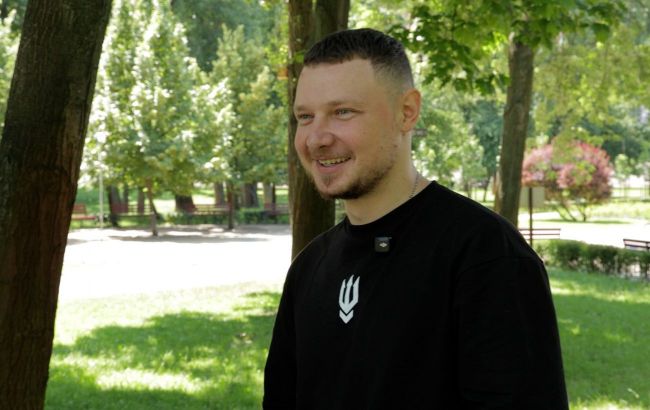 Combat medic of the 66th Mechanized Brigade Hippocrates (photo: RBC-Ukraine)
Combat medic of the 66th Mechanized Brigade Hippocrates (photo: RBC-Ukraine)
"At war, everything is black and white. In civilian life, there are too many shades of gray and hypocrisy," says combat medic Hippocrates as he compares two dimensions of his life. In this interview, the soldier shares his thoughts on rehabilitation, willpower, taking part in the Invictus Games, and meeting Prince Harry.
Yaroslav joined the army voluntarily in the fall of 2022. He served in the 66th Mechanized Brigade, and a day before going on leave, he got a serious injury and lost his leg. Despite that, he found the strength to go through a difficult rehabilitation, later participated in the Invictus Games, and founded a sports club for veterans.
The key highlights of our conversation are summarized below.
– How did you join the army?
– When the full-scale war began, I went to the military enlistment office like many other men. But the lines were endless, and no one took me. I was 24 at the time. They said they'd call me in a month. A month passed, and no one called. I went again, and they told me the same thing. This went on until October. That summer I turned 25, and in September I updated my passport and came back again. I said, "Give me the draft notice and tell me the date I'm going to the front line."
By the end of October, I had taken basic training. I had only one condition at the enlistment office: we agreed I would serve as a combat medic, as I was a paramedic before. When I arrived at my brigade, I told them I had worked in an ambulance. That's how I ended up in a reconnaissance unit doing exactly what I wanted.
– What motivated you to become a combat medic?
– My main goal was to save lives so that the guys could return home to their families, to their mothers, fathers, daughters, and sons. That was my primary motivation.
– What are the most important qualities a combat medic should have?
– Tactical medicine is a harsh thing, and above all, a combat medic must remain calm. A wounded soldier might scream, cry, or beg to shoot him, but you have to do your job to keep him alive. No matter what.
– How did you get wounded?
– That day, July 10, I was supposed to go home. However, on July 9 at 10 PM, my commander told me that we had to go to a combat zone to evacuate guys from the gray zone because the front line had just shifted against us. The commander said, "If you go, complete the mission, then you can go home."
When we reached the guys' position and were already retrieving the bodies, there was a Browning (American machine gun —ed.) lying there. And when the guys picked it up, a tripwire flare was triggered. Smoke rose, and they started shelling us with 152mm artillery. We started retreating quickly to the evacuation point, which was six kilometers away. We went about one kilometer only and were spotted by drones. Then they started targeting us systematically.
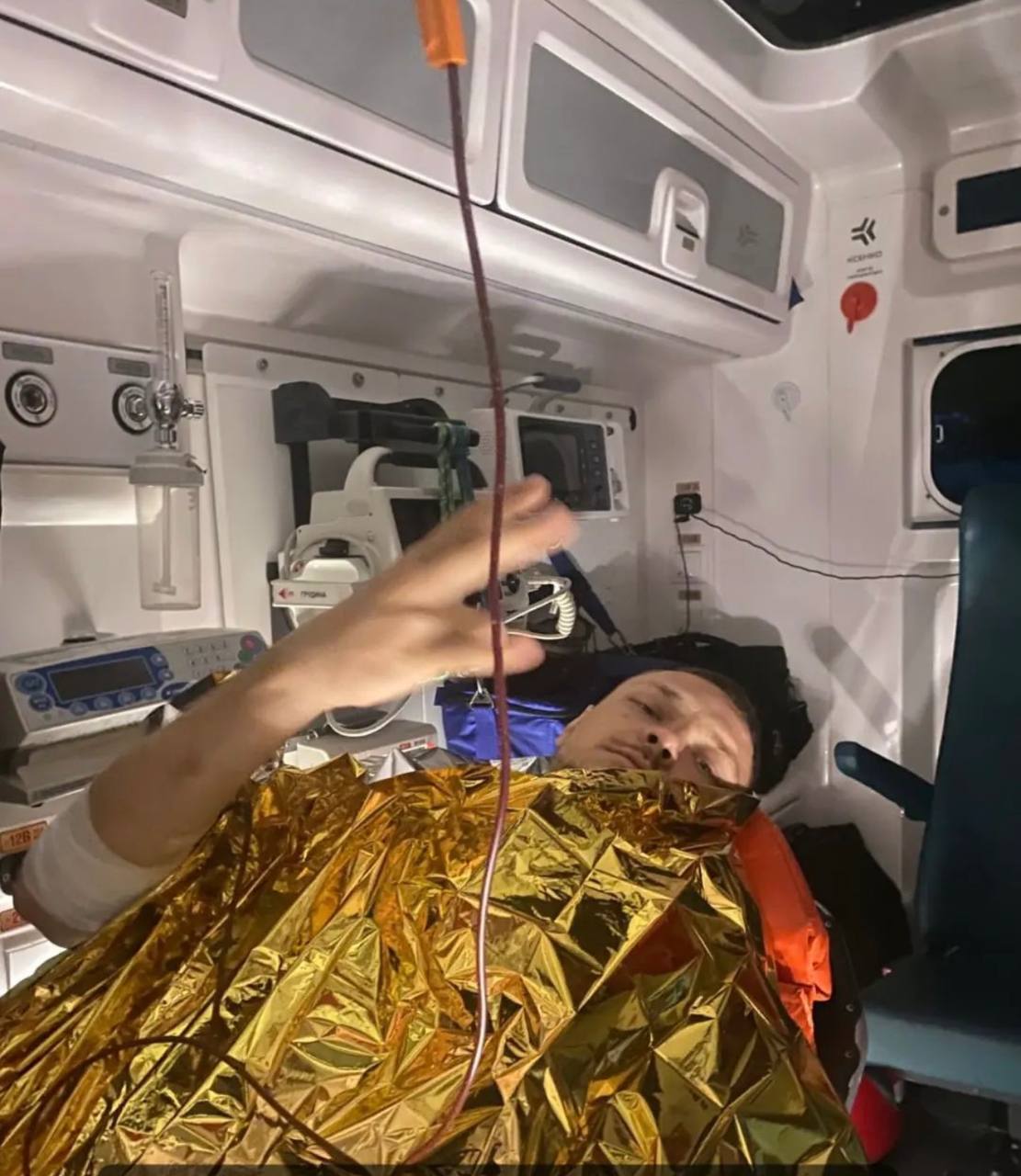 Yaroslav was seriously wounded one day before his leave (photo: provided by the interviewee)
Yaroslav was seriously wounded one day before his leave (photo: provided by the interviewee)
We hid among the trees. I thought I was hidden, but I was wrong. The first shell hit my foot. A sapper lying next to me was hit straight through. I couldn't see my foot anymore. A minute later, a barrage of Grad rockets landed. The Grads completely tore apart my thigh. I knew I was dying. I just lay there waiting to die.
But I was lucky. The 25th Airborne Brigade happened to come, and their guys evacuated me. They carried me for five kilometers under fire. Imagine this: shells falling everywhere, explosions all around, I'm lying there bleeding out, still conscious, unfortunately. I really wanted to lose consciousness because the pain was unbearable. Later, I was stabilized and taken to a hospital.
– What was the treatment like?
– The treatment was extremely difficult. I was bedridden for three months, lying flat on my back. After about one and a half to two months, I could slightly roll onto my side. My joints—knee, hip, ankle—had atrophied. Regaining mobility in atrophied joints and breaking down contractures is incredibly painful. It's like doing the splits every day for two hours.
Overall, I'm very grateful. My surgeon is a genius, with a God-given talent. He put me back together like a LEGO set.
– It sounds like you felt hopeless. Was it like that indeed?
– So many thoughts flash through your mind in a second. I was thinking a lot when I saw that, that's it, I didn't have a leg. But I saw that I still had my knee, and I thought, "Screw it, they'll fit me with a prosthetic." That was my first thought. I wasn't even upset. At that moment, I was thinking: "They'll give me a prosthetic, I'll go back to fight."
.jpg) After surgery, he initially moved around in a wheelchair (photo: provided by the interviewee)
After surgery, he initially moved around in a wheelchair (photo: provided by the interviewee)
At the hospital, a nurse asked me, "Now that you've lost your leg, how will you live?" Not the best question for someone freshly wounded. But I gave a simple answer: I'll slap a Maserati sticker on my prosthetic and hit on girls, telling them I pulled up in a Maserati.
For the first five days, I didn't answer any calls or texts. I knew it would be all pity and that there would be just one question: "What are you going to do now?" And I didn't know what.
I really wanted to walk again. Two months later, I was transferred to rehab. At first, I used a wheelchair. After about a week on crutches, I threw them away and just started walking, even though the rehab specialist yelled at me. That was a test for my body: if it could survive the injury, it could survive the rehabilitation.
– Who supported you the most during those moments?
– Once, when I was in the hospital, after yet another surgery, the pain was unbearable, just like when I was wounded. My father called me. I told him I was at my breaking point mentally. He said, "Son, if I could take this pain from you, I would, but I can't, so hang in there." He told me that's how character and steel are tempered.
– You now have an active athletic life: shooting, sitting volleyball, and wheelchair basketball. Was sports part of your life before the injury?
– When I decided to go to war, I understood I needed to improve my physical shape. During the period they didn't call me up, I worked out constantly: push-ups, dips, pull-ups, running.
Before the injury, I had never even heard of sports like wheelchair basketball or sitting volleyball. But I had dreamed of trying archery since childhood. And once I tried it, I fell in love with it. I even bought my bow.
Sitting volleyball is harder than regular volleyball: you do everything with your arms. Basketball too. I try different sports to figure out what suits me and what doesn't. For example, I tried sitting volleyball and realized I liked it. Then I tried wheelchair basketball and felt it wasn't quite for me.
Six months after getting my prosthetic, I ran a trail (running on natural, often uneven, and challenging trails – ed.) in Madeira, which was 15 kilometers through the mountains. It was extremely hard both physically and mentally. I made it purely on willpower.
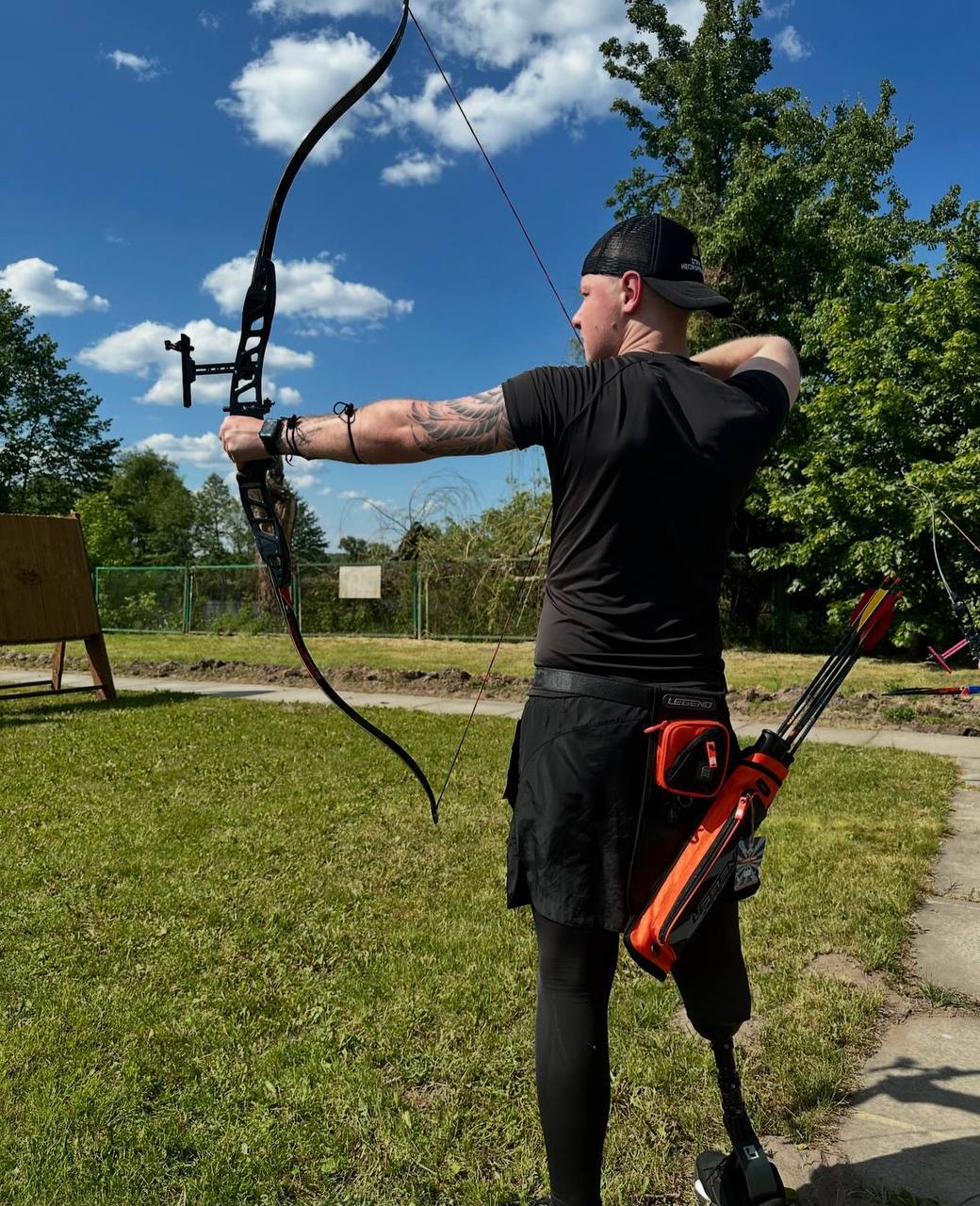 Yaroslav took up archery, something he had dreamed of since childhood (photo: provided by the interviewee)
Yaroslav took up archery, something he had dreamed of since childhood (photo: provided by the interviewee)
– If you were offered to run it now, would you do it again?
– Of course, I would! It's an incredible feeling when you reach the finish line. You feel happy that you did it. You realize that people without injuries couldn't do it, but so could my brother-in-arms and I.
– You took part in the Invictus Games. How did you make the national team?
– After I was discharged from the hospital, I moved to Kyiv, rented an apartment, and started thinking: "What's next?" During rehabilitation, they heard about the Invictus Games. It's like the Olympics for veterans. I decided to give it a try.
How did I make the team? I don't know. And no one on the team really knows.
They, first of all, look at what kind of person you are, and only then at your athletic performance. If you're toxic or unpleasant, there's a good chance you won't be selected.
– What sports did you represent Ukraine in?
– During the tryouts: archery, volleyball, and discus throw. In the actual competition, wheelchair basketball, sitting volleyball, and cross-country skiing.
Honestly, I thought I'd be nervous because of public pressure. Friends and acquaintances wrote: "We'll be watching," "Don't let us down." I felt the weight of responsibility. But I stayed calm and focused during volleyball, basketball, and skiing. Especially skiing. I wasn't nervous at all. I got to the starting line, and everything else shut off. Nothing else mattered. It was just me and the track. I had to give 100%.
– What were your results?
– I aimed to take first place but missed it by 40 milliseconds. Still, I'm glad I made the podium, and that three Ukrainians were standing on it.
– What did you feel at that moment?
– Pride. For myself and the guys.
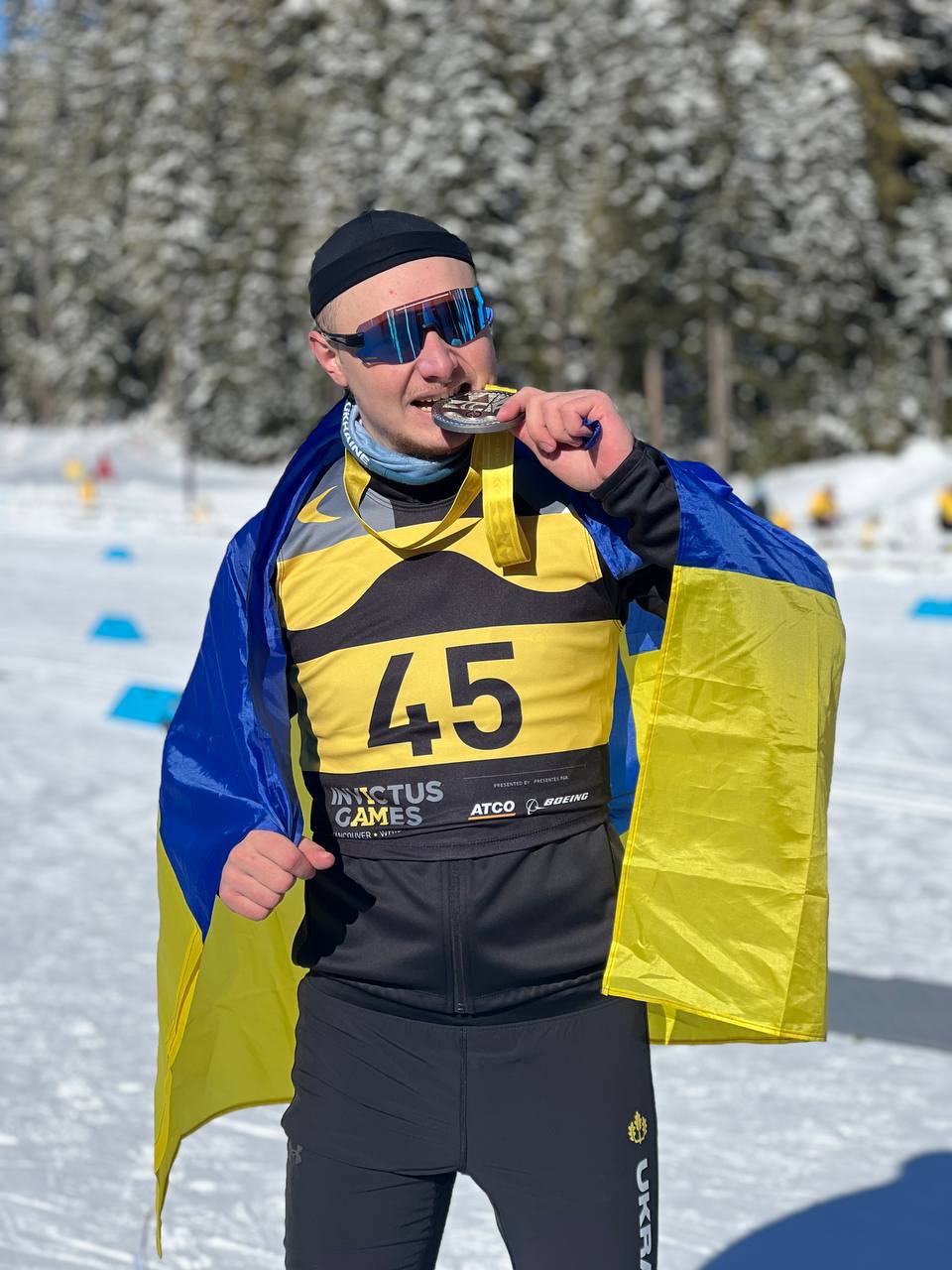
Participating in the Invictus Games (photo: provided by the interviewee)
– During the Games, Prince Harry came up to your team. Did you get to talk to him?
– We saw each other a few times but didn't talk because of the language barrier. We just exchanged a few standard phrases.
He's a pretty simple and pleasant person, and so is his wife. While talking to him, it didn't feel like he was a prince, a royal, or that we were somehow beneath him. When we took third place in volleyball against the UK, he came over to congratulate us. And during the group photo, he knelt beside us. That's a big gesture for a prince.
– You founded the NGO "Iron Warriors Club." What does the organization do?
– My nonprofit is a sports club for veterans. The goal of this club is to engage veterans and introduce them to various sports they can participate in. In my club, we now have regular training in wheelchair basketball, pickleball, and tai chi.
– In your opinion, what's missing in the state's veteran policy? What should be improved?
– Too much bureaucracy. It took me a whole year after discharge to get my war-related disability certificate. The state is switching to digitalization. Right? Then why can't I submit documents digitally? Why do I have to collect a huge stack of papers and physically drag myself, without a leg, to the other side of Kyiv just to be told, "You're not registered in Kyiv, go where you are registered." And then you jump through a few more hoops.
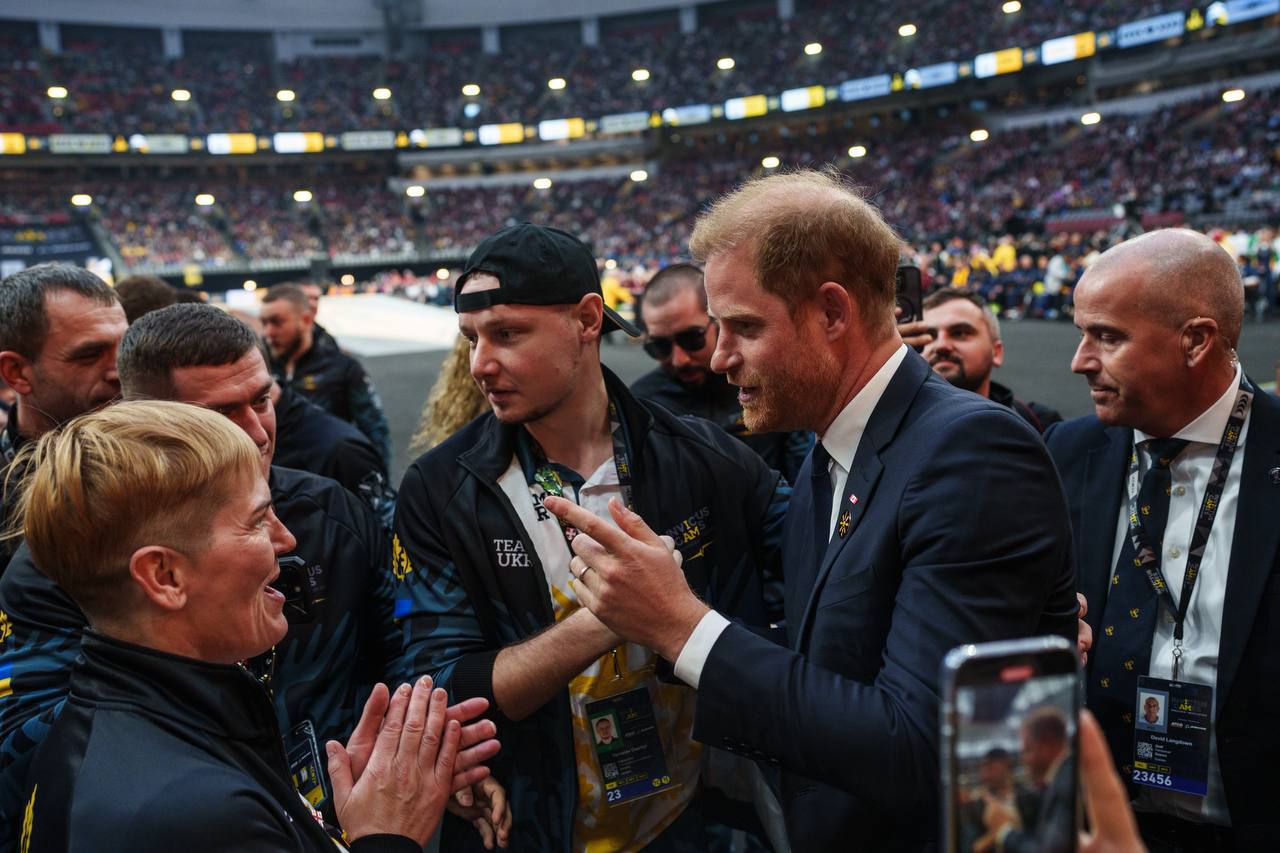
Meeting Prince Harry (photo: provided by the interviewee)
– How have you changed internally during the full-scale war?
– My mom says I'm heartless now. I've become tougher and more short-tempered. Civilian life is hard. There (on the front line —ed.), everything is clear. Things are black and white. People are sincere. If someone doesn't like anything, they'll tell you straight to your face. In civilian life, there are too many gray shades and too much hypocrisy.
If I had the chance to return to the front, I would. But the military medical board wrote "removed from the register," and that's it. No one will call me up now. Otherwise, I'd go back without hesitation to my guys. I've got some real beasts over there!
– Do you believe in a truce with the Russians?
– I'm afraid of the consequences if there's a truce or a freeze. How do you explain it to a soldier who's been risking his life for three years, who's lost so many brothers in arms? How one could tell him: "That's it, so put down your gun, we've got peace. For now." But this is Russia, and you can't trust them.

